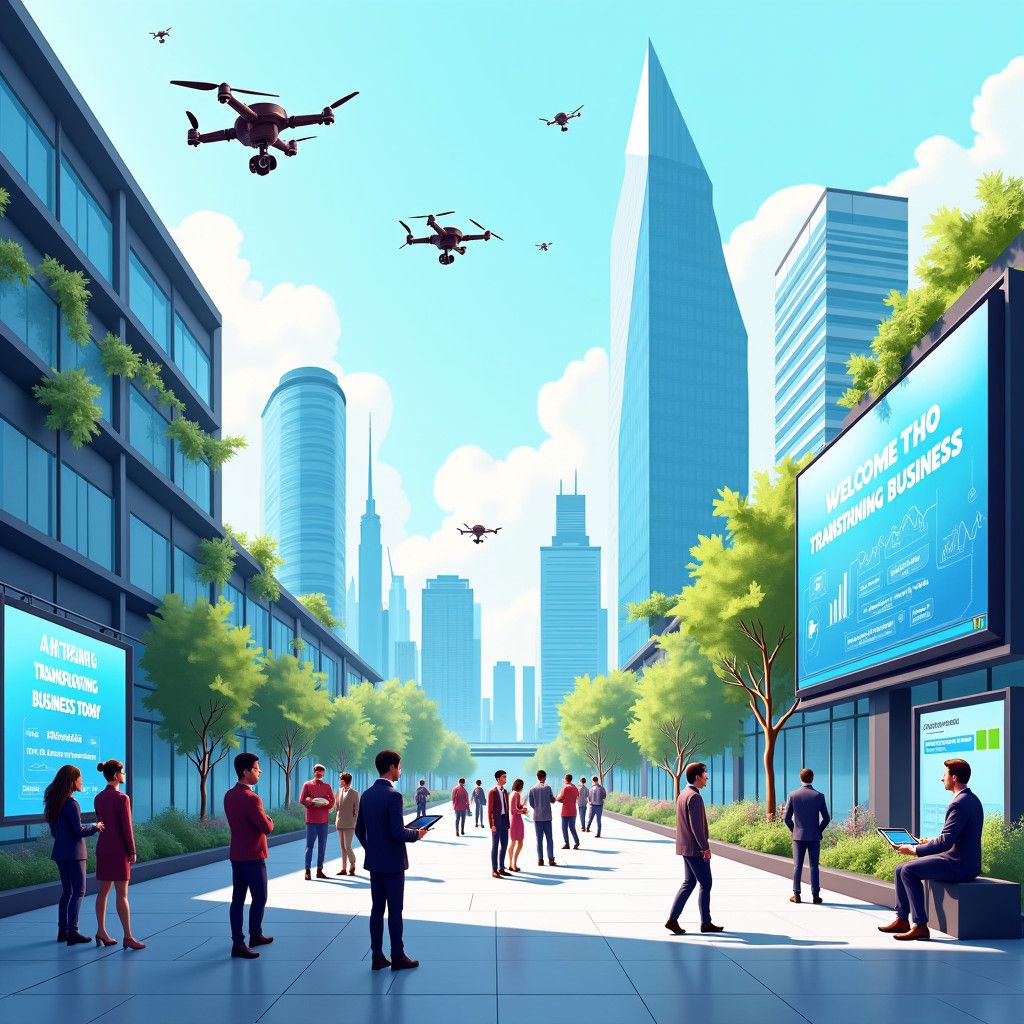As we approach 2025, organizations are increasingly turning their attention to Artificial Intelligence (AI) and its potential to revolutionize operational dynamics. Current market trends point to the emergence of autonomous AI agents, which are predicted to reshape business landscapes dramatically. This article explores how these agents will influence various aspects of business operations, decision-making, and customer engagement.
The adoption of AI agents in business operations offers unique advantages. For instance, automation of routine tasks enables organizations to enhance productivity significantly. According to a report by McKinsey, businesses that implemented AI solutions have seen productivity increases of up to 40%. This trend exhibits no signs of slowing, with advancements in machine learning and natural language processing pushing businesses closer to a fully automated future.
One of the most significant changes anticipated is the integration of AI agents into customer service functions. These autonomous agents can manage inquiries, process transactions, and even handle complaints effectively. For example, companies such as Amazon and chat platforms like Zendesk are increasingly deploying AI chatbots that operate 24/7, providing instant responses to customer queries. This capability not only improves customer satisfaction but also reduces labor costs and operational overhead.
Moreover, AI agents will play pivotal roles in decision-making processes. As organizations gather massive amounts of data, AI tools are capable of processing and analyzing this data with unprecedented speed and accuracy. This capability allows businesses to identify trends and insights that may take human analysts weeks to discover. In sectors such as finance, where timing and accuracy are paramount, AI agents can forecast market trends or assess risks more reliably than traditional methods.
Consider the finance industry, where companies like JPMorgan Chase are already using AI algorithms to predict stock trends and investment opportunities. The bank’s Contract Intelligence program uses machine learning to review legal documents, significantly reducing the time required for document analysis from hours to just minutes. Such examples underscore the potential for AI to enhance not just efficiency but also strategic decision-making.
However, the transition towards a future dominated by AI does not come without challenges. Companies must navigate concerns about privacy, security, and the ethical implications of deploying automated agents. As per a study conducted by PwC, 54% of executives are worried about the potential misuse of AI technologies. Addressing these concerns will be critical for businesses looking to implement AI solutions sustainably and responsibly.
In addition, the workforce is likely to experience a significant transformation as AI agents handle increasingly complex tasks. While some jobs may become obsolete, new roles will emerge. The same PwC study indicates that AI could create approximately 7.2 million jobs by 2037, emphasizing the importance of upskilling current employees to adapt to this shifting landscape. Companies that prioritize employee training and development relative to AI technologies will be better positioned to thrive in the coming years.
Furthermore, the synergy between human employees and AI agents can be remarkably beneficial. For instance, marketing teams can leverage AI to analyze customer behaviors and compile data that supports highly personalized campaigns. Brands like Netflix effectively utilize customer data with AI algorithms to recommend content tailored to individual viewer preferences, fostering customer loyalty and engagement.
As businesses look ahead, the potential for AI agents to transform everyday operations, enhance customer interactions, and drive significant productivity gains is significant. The time has come for organizations to consider how these innovations align with their goals and integrate them into their strategies.
It’s crucial to maintain a proactive approach, investing in the right technologies while also considering ethical implications. By doing so, organizations will not only survive but thrive in the forthcoming era of autonomous AI agents, making remarkable strides in efficiency and customer satisfaction.
As we stand on the brink of this transformation, company leaders must ask themselves: Are they ready to integrate AI agents into their business models? The answer will determine their position in the competitive landscape of 2025.












